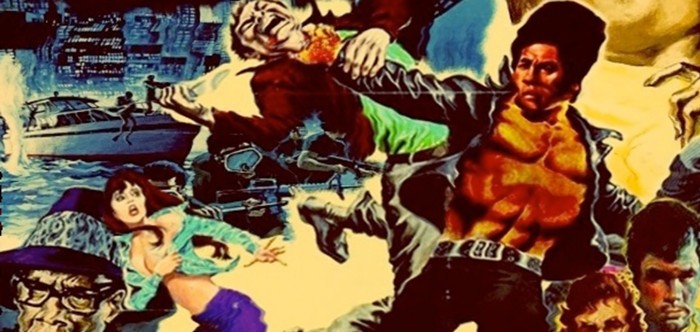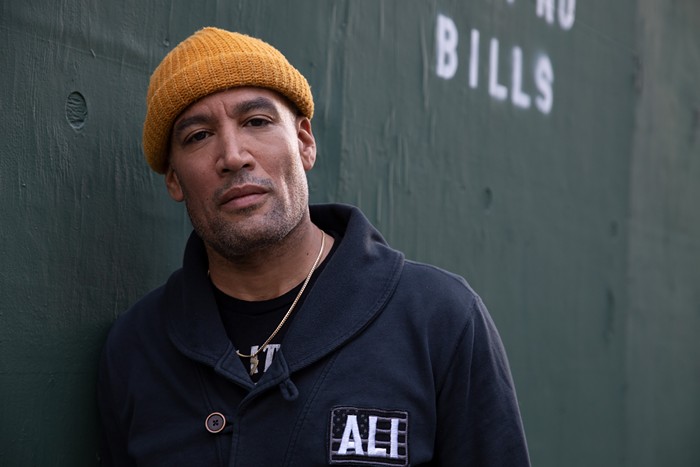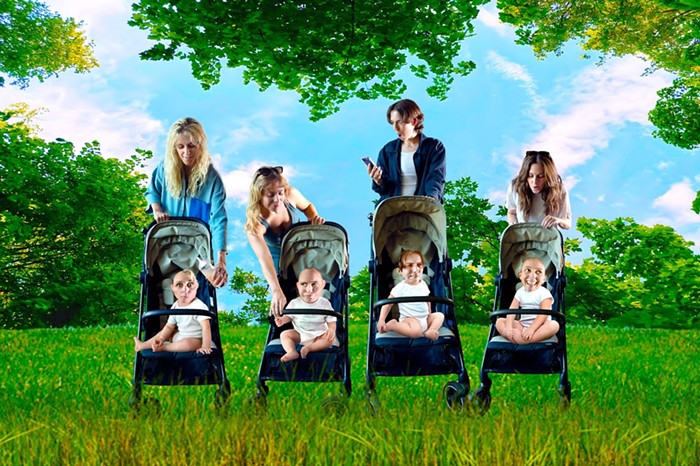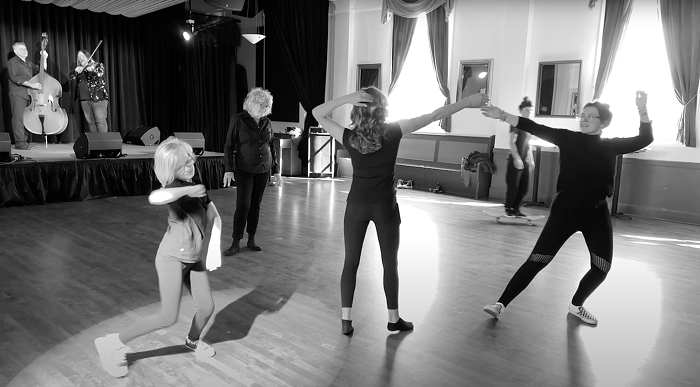Kate Nash's favorite Roald Dahl story is George's Marvelous Medicine, about the kid poisoning his unspeakable grandmother—about par for Dahl's course. It's an odd choice—particularly, it seems, for Nash, whose songs feature none of Dahl's grisly fates, and whose lead single's video has toothbrushes nuzzling, watches hugging, and other stop-motion displays of accessory affection. But beneath the skittering drum machines and jaunty piano of the best relationship narratives on Nash's Made of Bricks is a Dahlishly wry discontent.
Dahl comes up after I ask Nash about the song "Mariella," which is about a girl who tires of speaking and glues her lips together. Nash, archly narrating, makes it clear that she's behind Mariella, envies her, even. The rest of the characters on Made of Bricks lack her conviction—they obsess and worry, they second-guess, they give hopeless speeches designed to convince themselves of untruths. But Mariella shuts up and stays that way. Mostly because she's a kid.
"Kids are amazing," Nash says, on the phone from Boston—far from her London home—as she prepares for a gig on her first American tour. "They've got the most belief in what they're doing, because they're so un-cynical. It's like when you're young and your mum tells you off for something and you're like, 'I'm never going to be like that when I'm a parent, I know it.' And you believe it."
Nash speaks quickly and makes frequent amendments, abandoning half-sentences remorselessly for new ones, spattering her language with "y'know"s. She's not Mariella. "You genuinely believe what you say, whereas when you're older, when you're fighting or something... you can know it's kind of a lost battle. Or know you're really just trying to hold onto something because it hurts to let go."
Now we're on familiar ground. The song with the toothbrush-and-watches video is called "Foundations," and it's a deadpan list of complaints Nash delivers to a guy she can't leave. She ought to leave him, it's clear, but that's no help; Nash tries and fails to talk herself single. Then there's "We Get On," which spends its last verse being unconvincingly blasé about the guy who kissed someone else during the bridge; or "Pumpkin Soup," where it's the guy who's smitten, with a narrator who just wants to make out. These aren't depressing songs—in fact they're funny, sometimes ruthlessly so—but they're hardly satisfied. Nash's characters rarely are. "I think you rarely find a human being who is actually content," she says.
Nash's sudden leap from a teenager with a guitar and a MySpace account to a 20-year-old with a number-one album has cocked a few skeptical eyebrows. But it's clear she's been writing for much longer, which is why we end up talking about Dahl and Nabokov rather than the Beatles or Lily Allen. She started writing stories when she was about 14, she tells me, "but I could never come up with anything I was satisfied with. I think I was trying to be something, you know? Trying to be really clever, or poetic, or eloquent, and I couldn't really grasp it. So everything I did was kinda contrived."
This was dispelled by discovering punk, now the salvation of three or four generations of kids worried about having to be eloquent—and no, there's nothing ostentatiously "clever" about Nash's songs, but they're not as straightforward as the language she's learned to let herself write in. Songwriting hasn't replaced her old ambitions, either; she gives me a matter-of-fact synopsis of a story she's written about a homeless transvestite, a secret society that meets in a tearoom, and what I think she said were two bank-robbing aunts.
But she still wants to be Mariella. She says so in the song, and on the phone, after bashfully suggesting that Mariella might find love with Tim Burton's Vincent Price-obsessed character Vincent Malloy. "I wish I could be like her. More mysterious. I argue, and I'm loud, and Mariella, she doesn't need anything. She's so sure of herself."
"Well," I say, "being very sure of your emotions is kind of a childish thing."
"Yeah."
So Kate Nash misses being a kid. But a kid couldn't write "Foundations" or "We Get On," and if they wrote "Mariella" it'd be about Mariella, unlike Kate Nash's version, which is really about Kate Nash. The best songs on Made of Bricks—sad, sarcastic, and conflicted—are adult songs, and that's a good thing, as is Nash's decision, after consideration, not to glue her lips together.


















